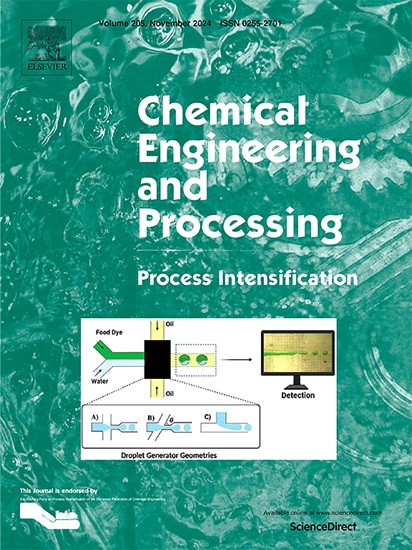Current status of electrode corrosion passivation and its mitigation strategies in electrocoagulation
IF 3.8
3区 工程技术
Q3 ENERGY & FUELS
Chemical Engineering and Processing - Process Intensification
Pub Date : 2025-01-25
DOI:10.1016/j.cep.2025.110192
引用次数: 0
Abstract
As an environmentally friendly electrochemical water treatment process, electrocoagulation has received extensive attention in recent years, with the advantages of no additional chemical injection, no secondary pollution, and low sludge generation. During electrocoagulation, the electrode is corroded and then gradually passivated, resulting in low electrocoagulation efficiency, which limits the wide application of electrocoagulation treatment. This review highlights latest detection of electrode corrosion/ passivation and its mitigation strategies as well as future research direction. We describe the method of detecting electrode passivation by electrode surface morphology and electrochemical analysis, reviews the factors affecting the operation of electrocoagulation and electrode passivation, and provides an overview of methods to mitigate passivation, such as changing the current mode, designing new electrodes, introducing Cl– into the solution and so on. In-depth research and real-time monitoring of electrode passivation, and the synergistic effect of machine learning and passivation mitigation strategies should be considered to overcome the EC development bottleneck and achieve a large-scale application in actual production.

求助全文
约1分钟内获得全文
求助全文
来源期刊
CiteScore
7.80
自引率
9.30%
发文量
408
审稿时长
49 days
期刊介绍:
Chemical Engineering and Processing: Process Intensification is intended for practicing researchers in industry and academia, working in the field of Process Engineering and related to the subject of Process Intensification.Articles published in the Journal demonstrate how novel discoveries, developments and theories in the field of Process Engineering and in particular Process Intensification may be used for analysis and design of innovative equipment and processing methods with substantially improved sustainability, efficiency and environmental performance.

 求助内容:
求助内容: 应助结果提醒方式:
应助结果提醒方式:


